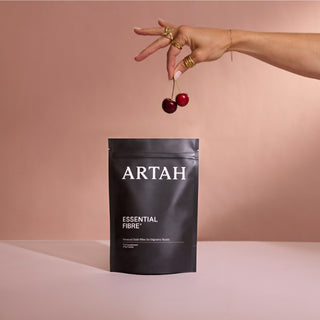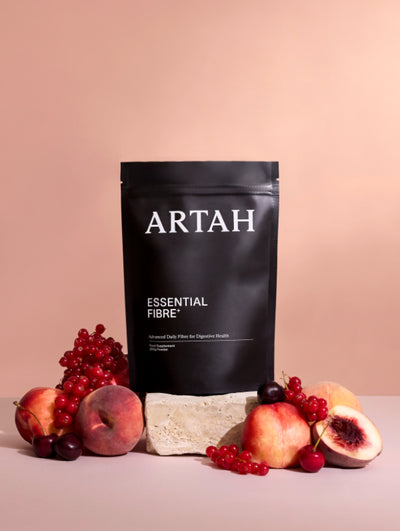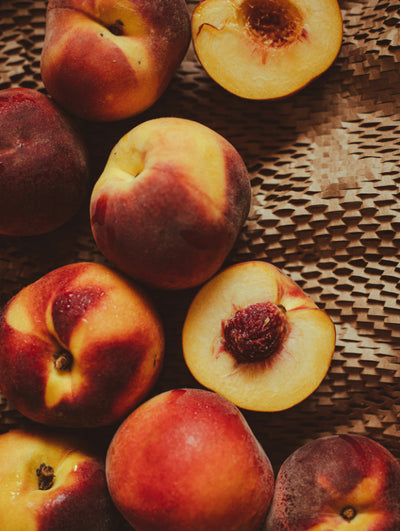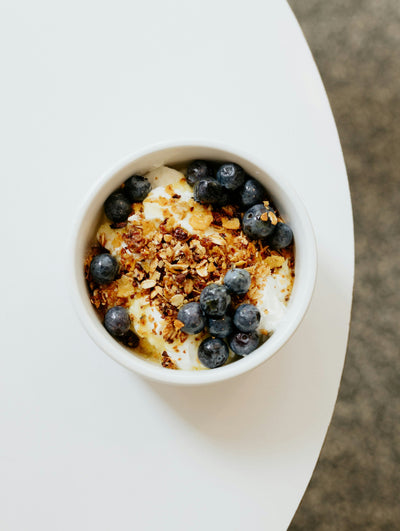Whilst humans have evolved in many ways over the course of history, our stress response has not. Believe it or not, our bodies can’t distinguish between a physical threat (ie. running away from a tiger) and emotional stress (ie. a bad argument with your partner or a stressful period at work.) When the stress response is activated, biomarkers like heart rate, respiration rate, blood pressure, and blood sugar will rise to prime us for movement. Stress will also divert blood flow towards the heart and muscles, and away from our central organs, including the digestive system. This response is supposed to be fleeting, not chronic. When our bodies continue to respond to chronic stress, it can lead to a host of health issues and can have a particularly damaging effect on our gut health.
Unfortunately, this state of chronic stress is more common than not. A 2018 survey of over 4500 healthy adults in the UK revealed that 74% of people experience immense stress, so much so that in the past year, it left them feeling overwhelmed and/or unable to cope (1). There were clear gender differences as well; 81% of women said this compared to 67% of men.
What happens to our gut under chronic stress? A lot. Here are three things you need to know.
Digestion is Affected
Let’s start with the stomach. Whilst acute stress can increase gastric secretions, chronic stress can reduce them, which affects the acidic environment of the stomach. These gastric secretions are important; they create an acidic environment to combat any ingested pathogens, activate digestive enzymes, and help break down food. If we have insufficient stomach acid, food may not be broken down as efficiently, which can lead to indigestion, reflux, constipation and bloating. It can also impair nutrient absorption. There’s a behavioural aspect to chronic stress that compounds this effect – eating too much, too quickly, with insufficient chewing. This, combined with a lack of digestive priming from gastric secretions, can lead to long term bloating and discomfort.
Try This:
- Even if you’re having the most stressful day, it’s important to take a few minutes to wind down and prepare yourself for eating. Try not to eat in front of screens, and make sure you give yourself enough time to chew.
- Prime the stomach with apple cider vinegar: we love an ACV shot, especially for a little extra help with digestion. Go for raw, unpasteurized ‘with the mother.’
Gut Permeability Increases
‘Leaky gut’ – the colloquial phrase for increased intestinal permeability – can be brought on by chronic stress. Our gut lining is naturally semi-permeable, and naturally provides a barrier to support nutrient absorption. It selectively allows the passage of amino acids, carbohydrates, electrolytes, lipids, and water through the gut barrier, whilst protecting us from toxins and bacteria. But excess cortisol can cause an increase in this permeability by directly acting on the intestinal lining. Stress creates an inflammatory response, which activates immune cells, which can cause inflammation in the intestinal barrier. (2) When our gut lining is compromised it influences bacterial translocation and can also allow food particles to escape into the bloodstream, which brings on a whole host of issues. (2) Over time, this can lead to a weakened immune system, lots of food intolerances, skin issues, fatigue, headaches, brain fog and inflammation. (3)
Try this:
- It is important we focus on regulating the stress response to avoid this overproduction of cortisol. Breathwork is renowned for its ability to support the vagus nerve, and studies suggest that slow controlled breathing can instantly reset the nervous system and activate the ‘rest and digest’ mode. (3) Try this box breath method habitually 3x through the day and in moments of high stress. Breathe in for 4 seconds, hold for 4 seconds and breathe out for 4 seconds. Repeat this 3x through.
- G.I. Fix - this formula contains soothing and mucilaginous herbs alongside probiotics and digestive enzymes for comprehensive gut support. Two hero ingredients in the formula are Marshmallow and Slippery Elm. Marshmallow helps to ease irritation and promote healing of inflamed tissues. It also encourages the production of mucin, that enhances the protective mucous lining within the digestive tract. (4) Slippery Elm is a botanical powerhouse; it has prebiotic properties and when ingested, forms a protective layer in the gut. This mucilaginous quality not only supports the growth of probiotics but also helps soothe inflammation and improve overall digestive health. (4)
The Microbiome is Altered
Chronic stress can even have negative effects on the health of the microbiota. Studies have shown that it triggers a reduction of Lactobacillus bacteria and overall bacterial composition. (5) This means that the perception of stress in the brain can lead to dysbiosis in the gut. The chemical byproducts and compounds created by this dysbiotic state can consequently impact our metabolism, inflammatory status, and of course, feedback to our brain to alter our emotional state even further. This can be a scary thought, but also an empowering one, because learning to manage stress can also potentially help shape the microbiome favourably.
Try This:
- Surprisingly, self-generated positive emotions through mindfulness meditation, like gratitude, connection, tranquility, love and kindness, have been reported to elicit positive changes in the microbiota. (6) I love this example of how powerful our emotions and behaviours are at impacting our well-being. Of course, it’s easier said than done, but even starting with daily gratitude or gratitude journalling can get you on the road to a more positive frame of mind.
- Biome Restore: an extra strength probiotic with Lion’s Mane for emotional support.
- Increase fermented and prebiotic foods: studies have shown that those who eat more of these foods reported less ‘perceived’ stress. (7)

Disclaimer: The information presented in this article is for educational purposes only and is not intended to diagnose, prevent, or treat any medical or psychological conditions. The information is not intended as medical advice, nor should it replace the advice from a doctor or qualified healthcare professional. Please do not stop, adjust, or modify your dose of any prescribed medications without the direct supervision of your healthcare practitioner.
References:
1. Metal Health Foundation UK . https://www.mentalhealth.org.uk/about-us/news/survey-stressed-nation-UK-overwhelmed-unable-to-cope
2. Konturek PC, Brzozowski T, Konturek SJ. Stress and the gut: pathophysiology, clinical consequences, diagnostic approach and treatment options. J Physiol Pharmacol. 2011 Dec;62(6):591-9. PMID: 22314561.
3. Geng, S., Yang, L., Cheng, F., Zhang, Z., Li, J., Liu, W., Li, Y., Chen, Y., Bao, Y., Chen, L., Fei, Z., Li, X., Hou, J., Lin, Y., Liu, Z., Zhang, S., Wang, H., Zhang, Q., Wang, H., … Zhang, J. (2020). Gut Microbiota Are Associated With Psychological Stress-Induced Defections in Intestinal and Blood–Brain Barriers. Frontiers in Microbiology, 10. https://doi.org/10.3389/fmicb.2019.03067
4.Ried K, Travica N, Dorairaj R, Sali A. Herbal formula improves upper and lower gastrointestinal symptoms and gut health in Australian adults with digestive disorders. Nutr Res. 2020 Apr;76:37-51. doi: 10.1016/j.nutres.2020.02.008. Epub 2020 Feb 8. PMID: 32151878.
5.
6. Sun, Y., Ju, P., Xue, T., Ali, U., Cui, D., and Chen, J. (2023). Alteration of faecal microbiota balance related to long-term deep meditation. Gen. Psychol. 36:e100893. doi: 10.1136/gpsych-2022-100893
7. Berding K, Bastiaanssen TFS, Moloney GM, Boscaini S, Strain CR, Anesi A, Long-Smith C, Mattivi F, Stanton C, Clarke G, Dinan TG, Cryan JF. Feed your microbes to deal with stress: a psychobiotic diet impacts microbial stability and perceived stress in a healthy adult population. Mol Psychiatry. 2023 Feb;28(2):601-610. doi: 10.1038/s41380-022-01817-y. Epub 2022 Oct 27. PMID: 36289300; PMCID: PMC9908549.


















































